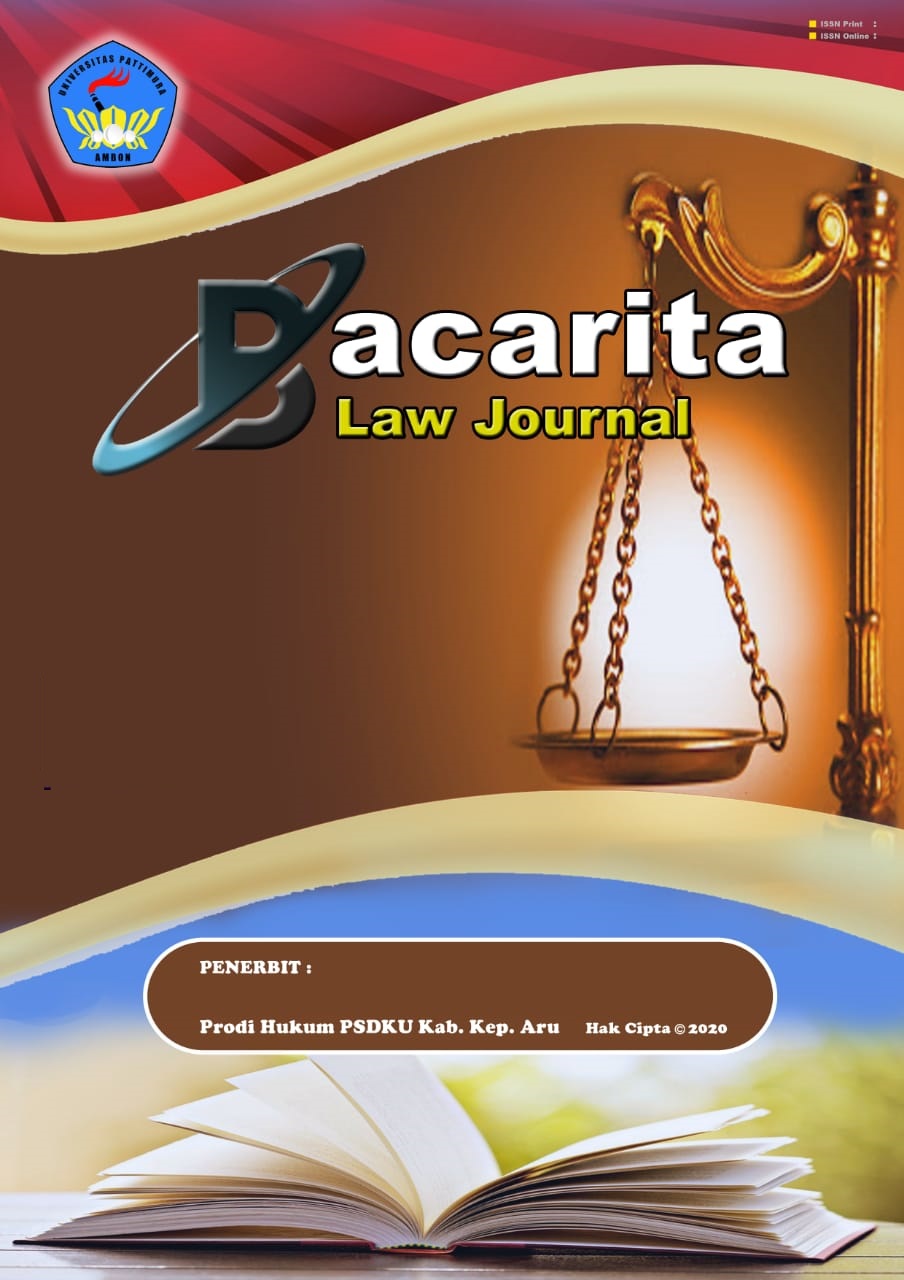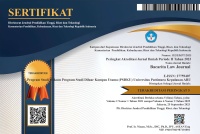Penghentian Penyidikan Tindak Pidana Pembunuhan Dalam Kaitan Dengan Pembelaan Terpaksa
Abstract
Forced defense (noodweer) is an act of defending oneself in a situation of pressure for an attack. In other words, in an act of self-defense, someone has received an unexpected or unknown attack. Any person who commits an act of forced defense for himself or another person, his own or another person's honor, morals or property, because there is an attack or threat at that time which is against the law, against himself or another person, against his own honor or morals or property. nor anyone else. The aim of this research is to examine and analyze the basis for terminating investigations into criminal acts of murder in relation to forced defense. And the termination of the investigation into the crime of murder in connection with the forced defense was in accordance with applicable procedures. This type of research is normative juridical in nature. The research type is descriptive-analytical. Sources of legal materials use primary legal materials and secondary legal materials. Techniques for collecting legal materials through literature study and qualitative analysis of legal materials. The results of the research show that the basis for terminating an investigation into a criminal act of murder in connection with forced defense is Article 49 paragraph (1) of the Criminal Code (KUHP), whoever commits an act of forced defense for himself or for another person, honor, morality or property. own or other people's property, because there is an attack or threat at that time which is against the law, against oneself or another person, against the honor of morality or one's own or another person's property. However, not all law enforcement officers have the authority to provide assessments in relation to Forced Defense (Noodweer), the law enforcement officers who have the authority to decide whether a criminal act of murder can be stopped in relation to forced defense are the Prosecutor at the prosecution stage and the Judge at the trial stage. And the termination of the investigation into criminal acts of murder in connection with the defense is forced to include cases that are in accordance with procedures, and there are also cases that are not in accordance with procedures.
Downloads
References
Buku
H. Salim HS dan Erlies S. Nurbani, Penerapan Teori Hukum Pada Penelitian Tesis dan Disertasi, Raja Grafindo Persada, Jakarta, 2013.
Jhony Ibrahim, Teori dan Metodelogi Penelitian Hukum Normatif, Bayu Publishing, Malang, 2008.
Lexy J Moeleong, Metode Penelitian Kualitatif, Remaja Rosda Karya, Bandung, 1989.
Lilik Mulyadi, Hukum Acara Pidana Normatif, Teoritis, Praktik dan Permasalahannya, Bandung: Alumni, 2007.
M. Yahya Harahap, Pembahasan Permasalahan Dan Penerapan KUHAP, Sarana Bakti Semesta Jakarta, 2021.
Peter Mahmud Marzuki, Penelitian Hukum, Kencana Pernada Media Group, Surabaya, 2006.
Pudi Rahardi, Hukum Kepolisian (Profesionalisme dan Reformasi Polri) Laksbang Mediatama, Surabaya, 2007.
Romel Legoh, ‘Penghentian Penuntutan Demi Kepentingan Hukum’, Lex et Societatis, Bandung, 2014.
Soejono Soekanto dan Sri Mamuji, Pengantar Penelitian Hukum, UI Press, Jakarta, 1986.
Skripsi, Tesis, Distertasi, Online/World Wide Web dan Lain-Lain
Eddy Hariyanto, Kanit Reskrim, Polsek Loajanan, and Kutai Kartanegara. [n.d.]. Eksistensi Surat Perintah Penghentian Penyidikan Dalam Diskursus Kepentingan Korban, 2020.
Surat Perintah Penghentian Penyidikan (SP3), Legal Akses (online), http://www.legalakses.com/suratpenghentian-penyidikan-perkara-sp3/.
Copyright (c) 2024 Abdul Azis, Deassy Jacomina Anthoneta Hehanussa, Remon Supusepa

This work is licensed under a Creative Commons Attribution-NonCommercial 4.0 International License.
Authors who publish their manuscripts in this Journal agree to the following conditions:
- The copyright in each article belongs to the author, as well as the right to patent.
- Authors are able to enter into separate, additional contractual arrangements for the non-exclusive distribution of the journal's published version of the work (e.g., post it to an institutional repository or publish it in a book), with an acknowledgment of its initial publication in this journal.
- Authors are permitted and encouraged to post their work online (e.g., in institutional repositories or on their website) prior to and during the submission process, as it can lead to productive exchanges, as well as earlier and greater citation of published work.
- Authors have the right to self-archiving of the article (Author Self-Archiving Policy)















